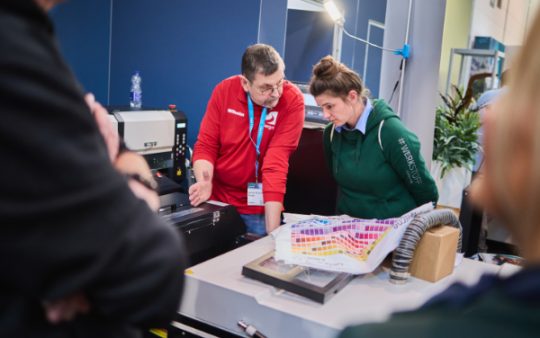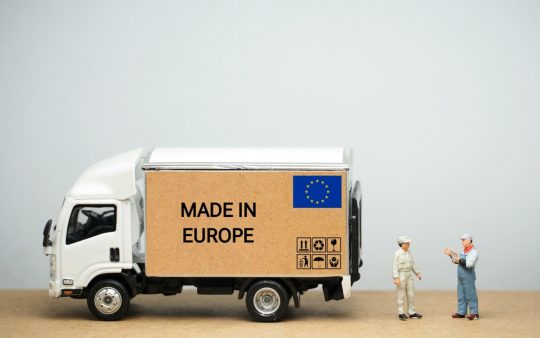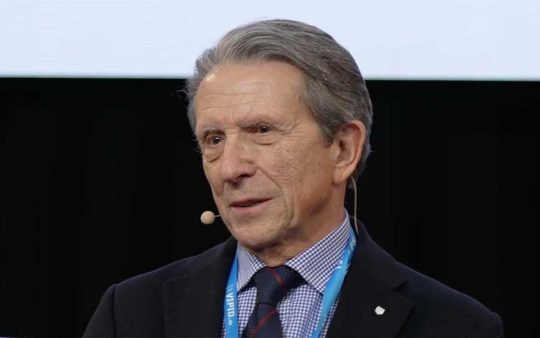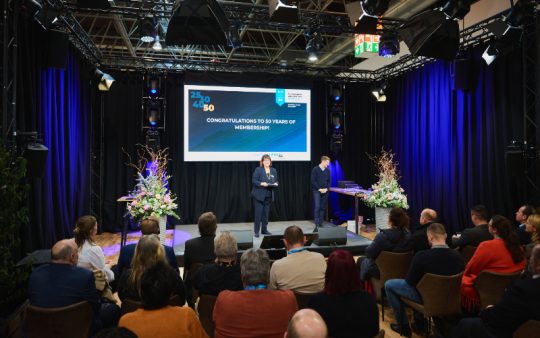Evrnu and adidas betting on the circular economy

Published on 03.02.2020
Seattle-based textile innovation company Evrnu specialises in regenerative fibre technology. Using a patented process, the company breaks down used clothing into its components and recycles the textile-cotton or synthetic waste into high-quality new yarn for the fashion industry. Stacy Flynn, co-founder and CEO of Evrnu, explains: “My business partner Christo and I built Evrnu to address a major problem in the textile and clothing industry: waste. Our technology makes it possible to turn post-consumer textile waste into a material our partners in the supply chain can use to produce new textiles without performance or quality losses.”
Called NuCycl™, the company’s technology is used to break old textiles down to the molecular level and reassemble them into fibres, which are then used to spin yarn for new clothing. Several major brands have shown an interest in the process; Target, Levi’s and adidas are customers already. The British fashion designer Stella McCartney designed a hoodie made from 60 per cent NuCycl™ fibres and 40 per cent organic cotton for adidas’ 2019 Fall/Winter collection.

The “Infinite Hoodie” was developed as part of an open source approach by adidas in collaboration with Evrnu. adidas is actively looking for innovative ideas and opportunities to minimize raw-material and resource waste. Specifically, the sports brand is focussing on three points:
“Made with Repurposed Plastic” aims at one of the biggest challenges faced by the brand today: dependence on plastics and the associated CO2 emissions. The company introduced an initial solution in 2015 with the launch of the “Parley Ocean Plastic®” sneaker, which is made from processed marine plastic waste. Some 11 million pairs of shoes were produced through the end of last year. adidas’ declared goal is to use only recycled polyester in all of the company’s products by 2024.
“Made to be Remade”, says the company, is about a sustainable circular economy. In a closed system, old material is recycled and turned into new high-performance sportswear. adidas is testing a return system with the Futurecraft.Loop, a shoe made from 100 per cent recycled TPU (thermoplastic polyurethane). At the end of its life, the customer returns the purchased shoe back to the manufacturer, who in turn uses the returns to produce new shoes. The ‘Infinite Hoodie” falls into the same category.
“Made to Biodegrade” describes the approach of completely returning biodegradable products to the natural ecosystem. In the laboratory, adidas develops products from materials made from natural raw materials like proteins. This is how the company created a compostable tennis dress in a petri dish in collaboration with partner Bolt Threads.

James Carnes, vice president of Strategy Creation, elaborates adidas’ sustainable strategy: “Making products with processed plastic waste was our first step. The next challenge is to stop producing waste altogether. We’re focussed on manufacturing products that are either fully recyclable or biodegradable. By working with a company that shares our vision, we can combine adidas’ sporting-industry expertise with the specialised know-how of our partners in order to create a waste-free world.”
Photos: adidas














